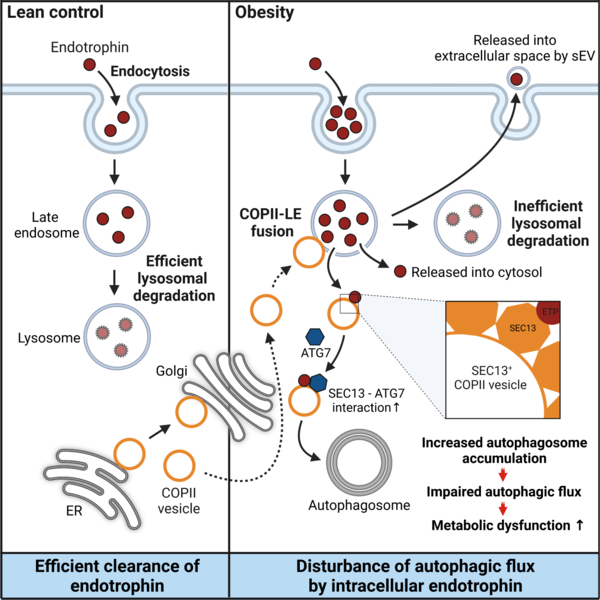Korean researchers said they have discovered "for the first time globally" that endotrophin proteins, which increase when people gain weight, cause diabetes.
Ulsan National Institute of Science and Technology (UNIST) said Tuesday that its research team, led by Professor Park Ji-young of the School of Life Sciences, has discovered that endotrophin proteins, which increase amid obesity, enter fat cells and control autophagy, the process of destroying unnecessary cells, leading to inflammation and diabetes.
Endotrophin, which Park discovered in 2012, is an extracellular matrix protein that responds to metabolic stress in the cell lining of obese individuals. Endotrophin levels increase in obesity, exacerbating diabetes by increasing adipose tissue fibrosis, inflammation, and insulin resistance.

According to researchers, endotrophin in obese people accumulates in adipocytes through endocytosis, the movement of cells from the outside to the inside. They said this leads to autophagic dysfunction, including the formation and degradation of autophagosomes involved in autophagy, leading to cell death, inflammation, and insulin resistance.
The accumulation of autophagosomes in endotrophin throws the autophagic process out of balance, leading to fat cell death, increased inflammation, and insulin resistance. Using the siRNA system, which interferes with specific gene expression, the researchers found that they could improve obesity-related metabolic diseases by inhibiting ATG7 protein function or neutralizing endotrophin.
“Intracellular endotrophin accumulation can be used as a biomarker of extracellular matrix homeostasis imbalance,” Professor Park said. “Efficient removal of excess endotrophin from obese adipose tissue could be a strategy to treat obesity and obesity-related metabolic diseases.”
The study, “High levels of intracellular endotrophin in adipocytes mediate COPII vesicle supplies to autophagosome to impair autophagic flux and contribute to systemic insulin resistance in obesity,” was published on June 10 in the online edition of “Metabolism: Clinical and Experimental,” a top international journal in endocrine metabolism.

